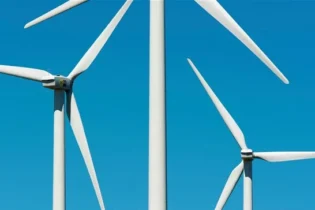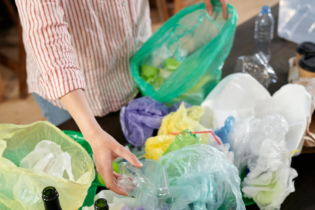The National Cleaner Production Centre South Africa (NCPC-SA) is an organisation funded by the Department of Trade and Industry (dti) and hosted by the Council for Scientific and Industrial Research (CSIR). Since the NCPC-SA began operating 12 years ago, it’s been assisting South African businesses manage their carbon footprints, improve energy efficiency and much more.
On 25 November, the NCPC-SA held a stakeholder engagement event where it announced the launch of a new and exciting project to assist local businesses lower their water footprint and conserve the precious resource more effectively. “Our Energy Efficiency programme has been extremely successful, with companies that we’ve partnered with, for example Mondelez chocolate factory in Port Elizabeth, saving substantially on their energy bill. The Mondelez plant was particularly noteworthy for having saved more than R1-million over the month of December just by ensuring that lights, machinery and equipment were turned off or switched to standby at the end of each day,” commented Ndivhuho Raphulu, director at the NCPC-SA. From energy to water Given South Africa’s current water shortages, the NCPC-SA has started working with the United Nations Environment Programme (UNEP), to develop a project that facilitates the process of taking into account the total cost that a product has on the environment – specifically in terms of water. For example – looking at water footprint specifically – it takes 15 415 litres of water to produce 1 kilogram of beef and 74 litres of water to create a 250 ml mug of beer (according to the Institute for Mechanical Engineers). The business caseWhen ReSource magazine asked for more detail about the business case for implementing water foorprinting and other water-saving strategies, Raphulu replied, “South Africa is the 30th driest country in the world. We are experiencing severe drought conditions and the government is currently engaged in a number of internal and transboundary projects to deal with the situation. That’s the main issue; another issue is that energy-use cannot be efficient without efficient water use because the two are reliant on one another in many ways. The third reason is that the world is becoming more turned on to sustainable consumption and production and brands need to communicate their environmental programmes efficiently and effectively to improve consumer buy-in.”
Heman Grover, NCPC-SA technical manger added, “Yes, it’s known that there is a business case for industrial energy saving and we’ve proved that through a number of programmes and projects over the years. If you’re comparing energy and water then the numbers reveal the extent of the business case for saving water. On average, users pay 50 to 75c per kilowatt hour for electricity. For water, users pay R10 per kilolitre – therefore, every kilolitre saved equals a lot more money saved. For example, the University of Pretoria (following an internal programme not facilitated by the NCPC-SA) has been able to save about R750 000 per annum through just reducing leaks – the cost of the programme was fractional when compared with the savings.” Julie Wells, marketing and communications manager at the NCPC-SA also commented, “Yesterday at a workshop with the Department of Water and Sanitation (DWS) we were discussing utility costs and the discussion came down to economics. One of the basic principles of economic is supply and demand, and the lower the supply of a product is, the higher the price is. As a result, water utility cost increases are expected soon. Additionally, there are industries in KwaZulu Natal which are calling us up desperate for solutions because water shedding is happening and as a result plants are being shut down for up-to-four hours at a time because they can’t operate without water. There is no stronger business case than the absence of a resource causing businesses to lose productivity.” Focus areas The NCPC-SA’s water saving programme for business will focus on four key areas, namely:- Policy issues: from a compliance as well as an information sharing strategy in conjunction with industry;
- Sharing case studies showing how companies have benefitted from the NCPC-SA’s Resource Efficient and Cleaner Production (RECP) programme, especially regarding water savings;
- Skills development and capacity building for industry and government departments, as well as other stakeholders regarding how to sustain water-saving efficiencies, and
- Communication and advocacy for industrial water saving.







